Commentary: As South Asia prepares to head to the polls, brace for a possibly violent election year
Against the backdrop of severe political and social upheavals, election season in South Asia could become even more violent, says Kalicharan Veera Singam from the NTU S Rajaratnam School of International Studies.
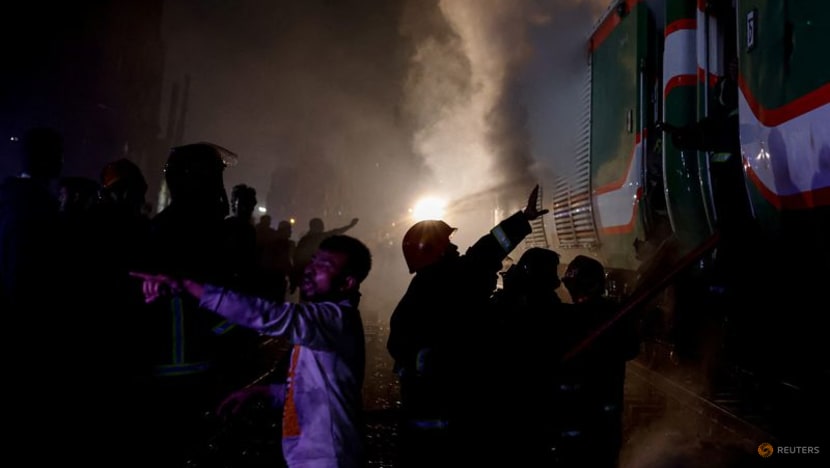
Firefighters and local people work together to extinguish fire after a passenger train caught fire, ahead of the general election, in Dhaka, Bangladesh, on Jan 5, 2024. (Photo: Reuters/Mohammad Ponir Hossain)

This audio is generated by an AI tool.
SINGAPORE: Along with many parts of the world, four South Asian countries - Bangladesh, Pakistan, India and Sri Lanka - face elections this year. Their elections come at a time of somewhat peculiar situations in their domestic political landscapes.
Elections in the region have usually witnessed sporadic electoral violence and unrest, but those taking place this year may be especially polarising and contain hallmarks of becoming particularly strifeful with large-scale electoral or communal violence.
BANGLADESH
Bangladesh was the first South Asian country to go to the polls on Jan 7. The election saw incumbent Prime Minister Sheikh Hasina of the Awami League return to power for a fifth time amid low voter turnout of 40 per cent.
The election was widely considered a sham as the principal opposition, the Bangladesh National Party (BNP) boycotted it, saying it was not free and fair. The Awami League’s election walkover - considered by some observers as a death blow to democracy in Bangladesh - was marked by concerning incidents of electoral violence.
A pre-election arson attack on a commuter train killed four, and on election day, a bomb blast outside a polling station in Dhaka killed three. The election season was also marked by violent anti-government protests. Ms Hasina accused the BNP of instigating some of the violence and called it a “terrorist organisation”.
Ms Hasina is the daughter of Bangladesh’s founding father Sheikh Mujibur Rahman and first became prime minister in 1996. Although she is credited with uplifting the Bangladeshi economy by initiating major development projects, her government faces accusations of human rights abuses and lacks legitimacy and trust.
The economy has also slowed sharply since Russia's invasion of Ukraine left it struggling to pay for costly imported fuel, forcing it to turn to the International Monetary Fund for a US$4.7 billion bailout last year.
With Awami League’s fourth straight term now lined up, there are strong anti-government undercurrents among segments of Bangladesh’s population. The United Nations rights chief earlier this month called on Bangladesh to renew its commitment to and protect its “hard won” democracy, voicing distress that the run-up to the election was marred by violence and repression of opposition candidates and supporters.
Although the 2024 elections are over, the country will likely continue to face troubles from growing anti-government violence.
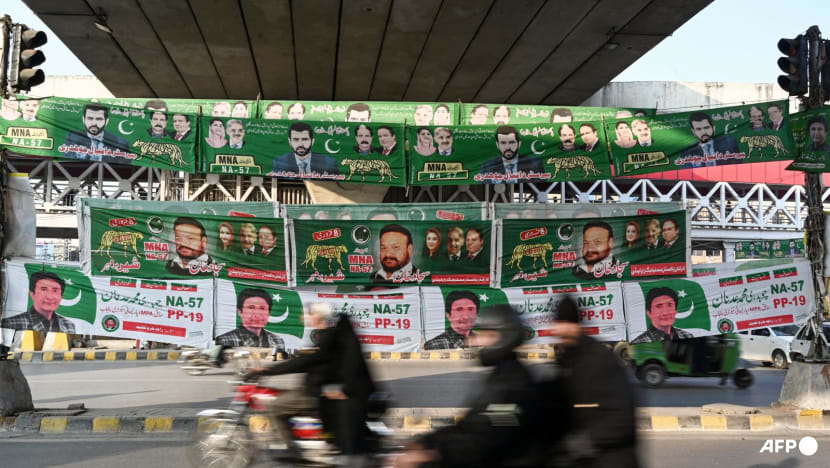
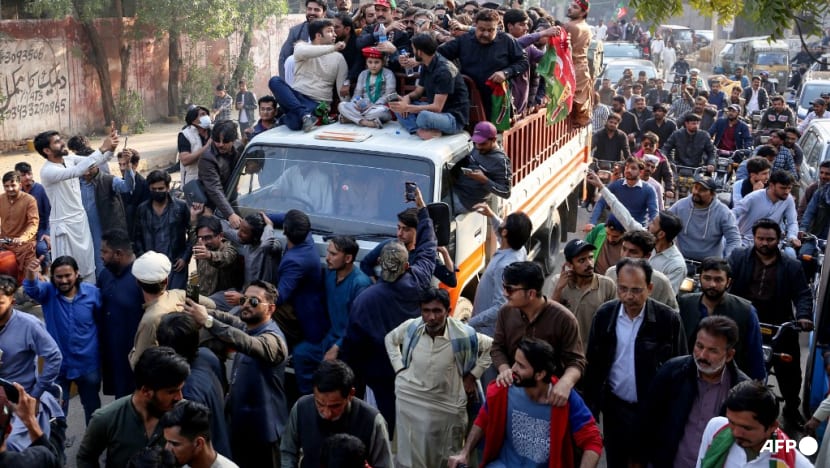
PAKISTAN
In Pakistan, elections are scheduled for Feb 8 but risk being postponed amid political uncertainties and the military’s meddling in the elections.
Pakistan’s former prime minister Imran Khan, who is currently in jail on various charges after being ousted from power in April 2022, has said the upcoming election could be a "farce". Khan, widely seen as the country's most popular leader, has accused the military of fixing the election by barring him from contesting.
Although Pakistan elects its civilian governments, the military has always wielded power and influence over the election process and elected governments. The army and Khan were on cordial terms before the 2018 general elections that brought him to power but the relationship soon soured.
After Khan’s ouster following his fallout with the military, Pakistan became embroiled in political uncertainty and chaos made even worse by a crippling economic crisis.
The tide has changed in 2024 and according to observers, the military is determined to prevent Khan and his party, the Pakistan Tehreek-e-Insaf (PTI), from forming the government. The exclusion of Khan from the election could increase the sympathy of those who consider him unfairly treated and worsen the popular discontent against the country’s powerful military.
More worryingly, Pakistan’s severe political problems in 2024 come amid militant attacks on the Pakistani military and police, having risen considerably in the previous year. The Islamabad-based Centre for Research and Security Studies (CRSS) reported that 2023 was the “deadliest year” or the country’s “police and military forces in a decade”, with more than 500 security personnel killed.
Tehreek-e-Taliban Pakistan (TTP), also known as the Pakistani Taliban, is the biggest culprit, responsible for several high-casualty attacks. TPP is a close ally of, but is separate from, the Afghan Taliban, which returned to power in Afghanistan in August 2021.
Pakistan officials have blamed the Afghan Taliban government for not doing enough to stop the TTP’s cross-border attacks. Still, the attacks are set to continue and possibly accelerate as TTP and other militant groups try to take advantage of Pakistan’s chaotic election.
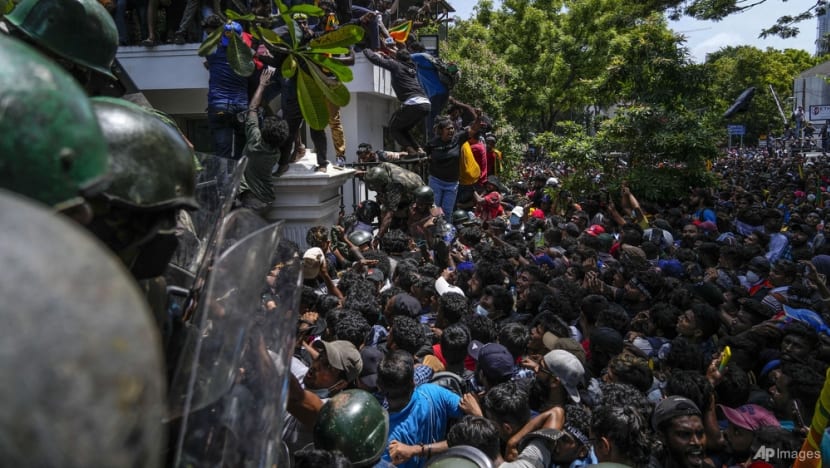
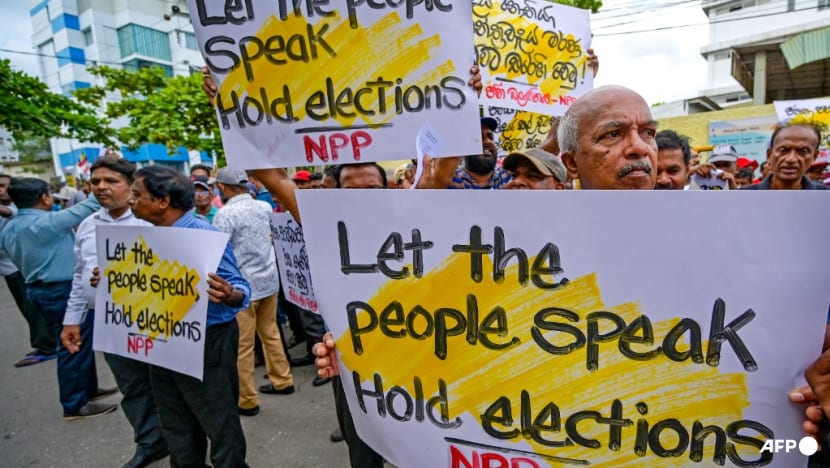
SRI LANKA
Like Pakistan, Sri Lanka is also reeling from a crippling economic and political crisis following the economic misadventures of former president Gotabaya Rajapaksa’s government that resulted in him and his politically dominant family getting ousted.
The Rajapaksa brothers were elected to power with overwhelming support from the Sinhala-Buddhist majority. However, within a few years, their gross economic mismanagement depleted the country’s meagre foreign exchange reserves. The debilitating economic crisis triggered an island-wide mass movement against the Rajapaksas and the entire political establishment of the country, which sometimes turned violent.
President Ranil Wickremesinghe, elected via a parliamentary vote in 2022 amidst the political chaos, is unpopular with the masses due to his close relationship with the Rajapaksa clan. Given this backdrop, there is much uncertainty over the presidential election due by September 2024 - the first to be held since the nationwide people’s movement of 2022.
Elections in Sri Lanka have always been communalised with the Tamil and Muslim-dominated northeast regions voting against Sinhala-Buddhist ethno-nationalist candidates. However, the election in 2024 will pose an additional complexity as there is widespread discontent against all parties and prospective presidential candidates.
Anti-government sentiments are still rife among the population and could get rekindled as the election nears given the widespread perception that the entire political class was responsible for the economic collapse.
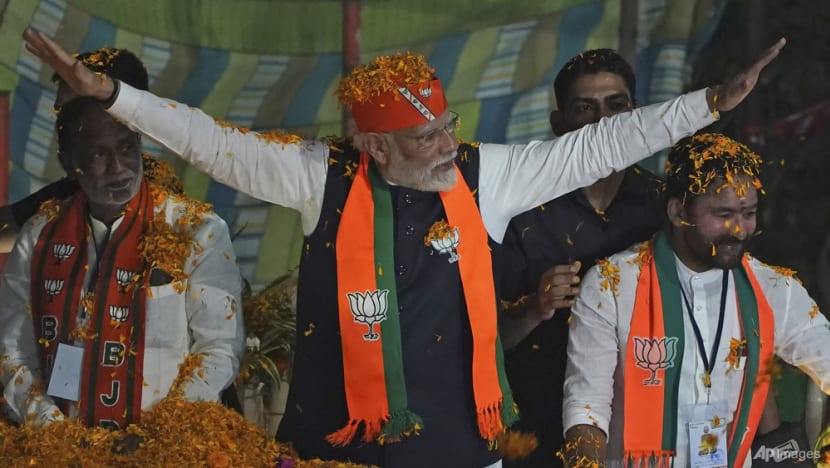
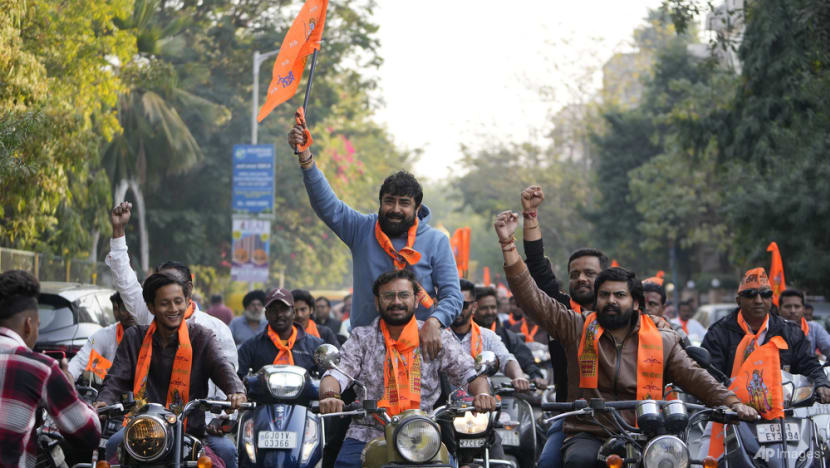
INDIA
Unlike its South Asian neighbours that face elections this year, India enjoys a high level of political stability with the Bharatiya Janata Party (BJP) government firmly at the helm. The BJP clinched three of the five state elections in December 2023, outperforming what election pundits and exit poll results suggested.
The BJP is now favoured to return to power with a thumping majority for a third consecutive term in India’s 2024 general election, set to take place in several phases in April and May. India’s elections will be relatively free and unlikely to witness widespread election-related violence. However, it is expected to be its most polarised and communalised. Unlike in the previous election years, during which the BJP’s message and promises focused on development and growth-related issues, the BJP’s 2024 election campaign is expected to feature Hindutva and Hindu nationalism front and centre.
The opening of the grand Ram temple in Ayodhya - erected at the site of the demolished Babri Masjid - is set to colour the election season of 2024. The Ram temple opening marks a significant milestone for the Hindutva movement and will be accompanied by euphoric celebrations across India. Ram is a revered god for Hindus, who many non-Hindu Indians also consider a major figure in the Indian civilisation.
The state’s heavy involvement in the temple construction and opening has solidified the BJP’s image as a party primarily serving Hindu interests. While the temple’s opening also presents a possible rare moment for reconciliation between Hindus and Muslims to put behind a difficult and painful dispute, there is also a likelihood that the communally and religiously charged election season could trigger violence between the two communities.
In 2023, several violent clashes broke out between Hindus and Muslims during Hindu processions in states like Haryana and Gujarat, and more could occur in 2024.
The South Asian region has been gripped by a wave of ethno-religious majoritarianism and democratic backsliding and the elections of 2024 are unlikely to reverse these trends.
With the backdrop of severe political and social upheavals and communal polarisations, this election season risks becoming even more violent.
Kalicharan Veera Singam is a Senior Analyst at the S Rajaratnam School of International Studies (RSIS), Nanyang Technological University (NTU), Singapore.














